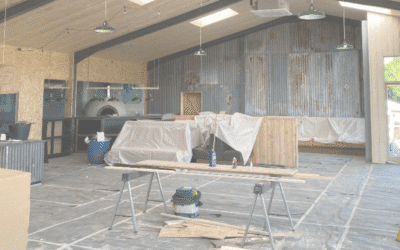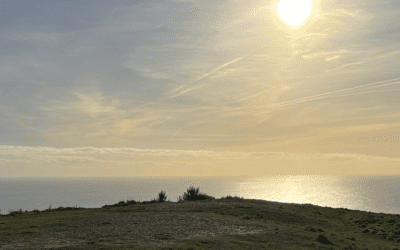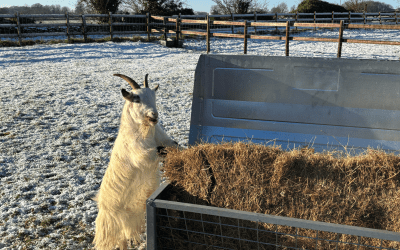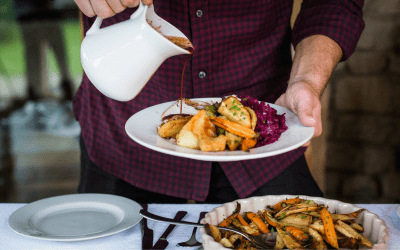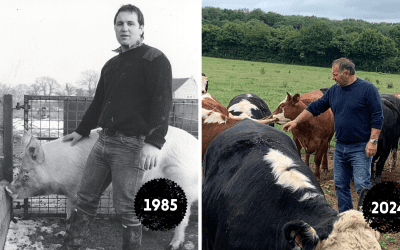Our Farm
Our farm is a 125 acre, family-run farm in the village of Winsley on the Wiltshire-Somerset border. The land has been farmed by our family for over five generations. Our farm produces organic vegetables and salads and is home to a native-breed suckler beef herd producing grass-fed beef for our farm shop.
The production of the farm has changed through the generations like the many other farms across Britain but our focus now is on pursuing regenerative methods. Regenerative farming by definition is “a system of principles and practices that generates agricultural products, sequesters carbon, and enhances biodiversity at the farm scale.” In essence, this was the traditional way of farming before the dawn of science and technology, guided by the natural world and the seasons and forged over thousands of years. Regenerative agriculture inspires our approach to farming and food production and is our guiding principle and direction of travel.
Find out more about our farming principles below.
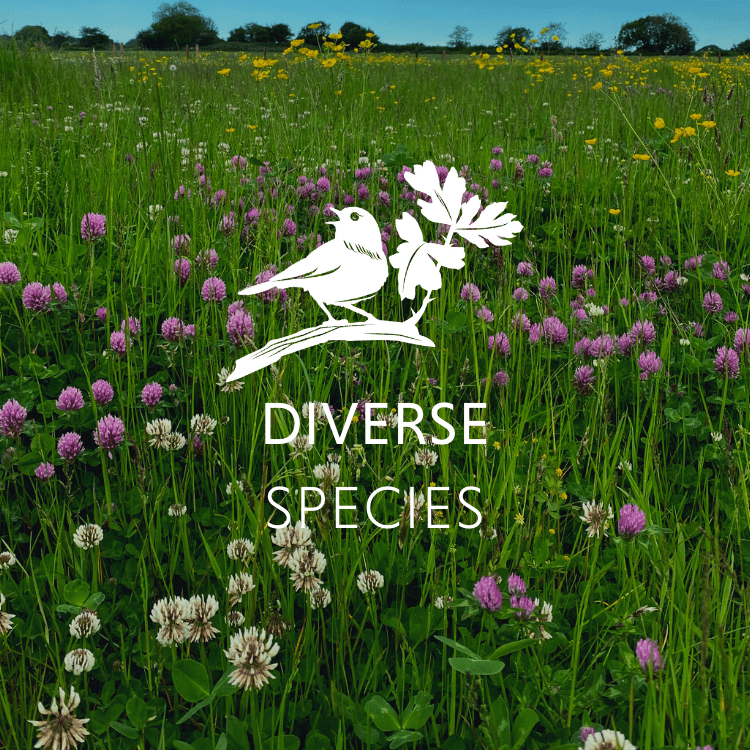
We favour diversity over monoculture on our farm. In our fields we have a diverse mix of grasses, wild herbs and legumes for our animals to graze. Along with the bountiful hedgerows around our fields, a varied and balanced diet is provided, leading to happier, healthier animals.
The different species also grow, flower and seed at different times of the year which is very much appreciated by our own bees and other wild insects, mammals, and birds. Each plant also sends down roots of varying sizes and depths allowing our soils to be penetrated allowing nutrients from manure, rainwater, and air to enter and be retained to support life the vast range of life below the soil.
Over the last few years, we have reseeded over 100 acres of pasture to introduce new species of grasses, wild herbs, and legumes to reinvigorate our pastures. We also manage the cutting of our pastures by ensuring we have a good amount of flowering species at different times of the year to help provide for the local ecosystem. Along with this, we have planted hundreds of metres of native-species trees to form new hedgerows and vital habitats for insects, birds, and small mammals throughout the year.
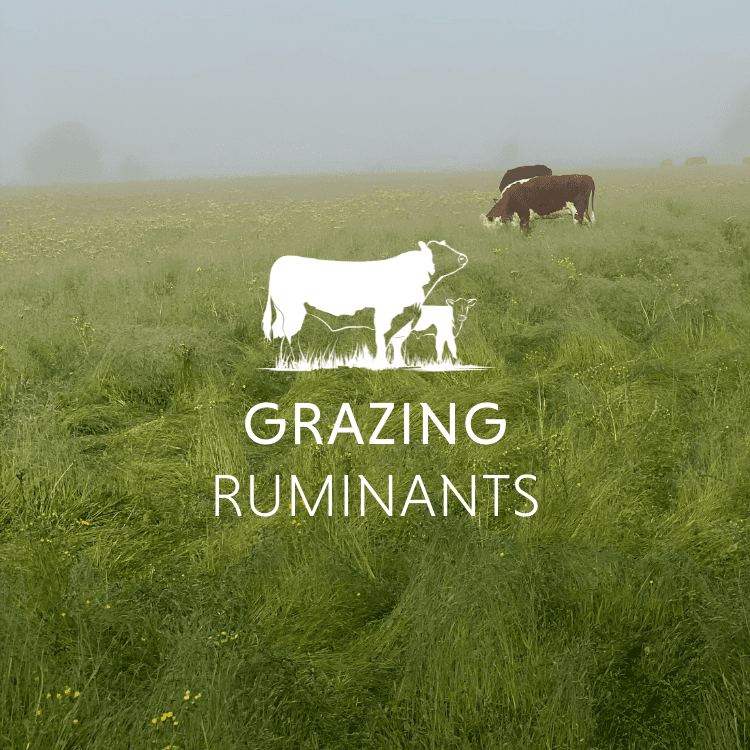
On our farm, we have carved up many of our larger fields back into smaller paddocks through planting hedgerows and thus allowing our herd to graze smaller areas, less often. As the cows move around our pastures, they leave their dung and urine behind which is packed full of nutrients to help to fertilise and condition the soil. This attracts insects and worms that help to break down what’s left behind and draw it down into the soil allowing it to be released as food for all forms of life within the soil. As the grass is left to recover it sends down deeper roots and sequesters carbon from the atmosphere into the soil through photosynthesis. The effect of grazing animals turbocharges the regrowth and health of the plant through what it leaves behind and the cycle continues.
Our Hereford and Angus cows are native-breeds and so are suited to spend much of the year outdoors grazing our fields. During the colder winter months, they are fed silage and hay from our own farm. This is a truly natural diet for ruminants like cows living wholly from their surroundings. They are not reliant on imported grains and crops diverted from our own food chains and so reducing their demands on the environment even more so. We are particularly proud of our grass-fed beef from our farm and is available from our butchers throughout much of the year.
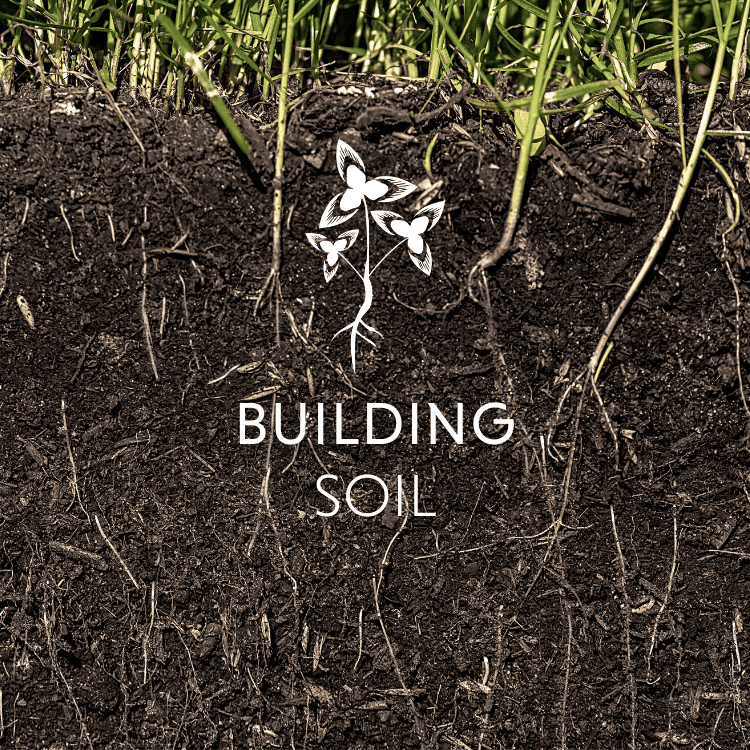
Deteriorating soil health is one of the main crises we face today. Apart from the ability to grow our food, soil traps carbon from the atmosphere, a vital process in climate change, but it is also home to life that is crucial to our existence and that we are only just learning about!
Keeping the soil healthy is the foundation to how we produce food in a regenerative way. In essence, regenerative farming aims to keep living roots in the soil, keep soil disturbance to a minimum and ensure that soil is covered. All these factors help the soil to build structure, maintain life within and protect it from extreme weather.
On our farm, our fields are permanent pasture. This means there is no tillage of the soil and the grass is left alone keeping the soil is kept protected all year-round. The long-established roots of the plants growing allow the soil to ‘stay alive’ providing a favourable climate for the bacteria and funghi that feed the micro and macro organisms that are so dependant on soil being healthy.
We believe that if we look after our soil, the soil will look after us.
Read the latest from our Farm Journal
Why Clarkson’s Farm feels oddly familiar
A few months ago, I wrote about how I often struggle to come up with the next thing to write about. That familiar battle with the blank page, and w...
The Patchwork Quilt of English Farming
Isn’t it absolutely beautiful at the moment? Hedgerows bursting with blossom, fields a vibrant green, and birdsong ringing out from dawn ‘til d...
Spring has sprung – and so have the cows!🐮
A Bit About Our Cows A few requests came back from my appeal for blog ideas the other week with the theme of how the business works behind the scen...
Are Farm Shops Selling the Real Deal?
This question was posed to me in response to my last blog when I asked you all for some food for thought on what to write about next. By the [&hell...
What the Dorset Coast Taught me This Week
As many of you may have gathered from my last journal, I felt it was time for a little break. So, last week, Tamara and I headed down to the [&hell...
A Tale of Woe on the Path to Net Zero…
Oh, what a week it’s been. At this rate, it feels like we’ll reach Storm Zachary by the end of February. Our originally planned closure has bee...
Paws, Rest & Reflect
Have you noticed the manic frenzy of wildlife recently? Birds whistling through the night, trying to find the best nesting spots for spring. Foxes ...
The Christmas Journey: Finding Joy Along the Way
Last week my son, Henry, said to me that the saddest part of the year for him is around 8 pm on Christmas Day. I remember that feeling so well—th...
Richard Reflects on 50 Years in Winsley
Last month, our local parish magazine, The Winsley Weaver, celebrated its 50th anniversary. My father, Richard, was invited to reflect on the chan...
